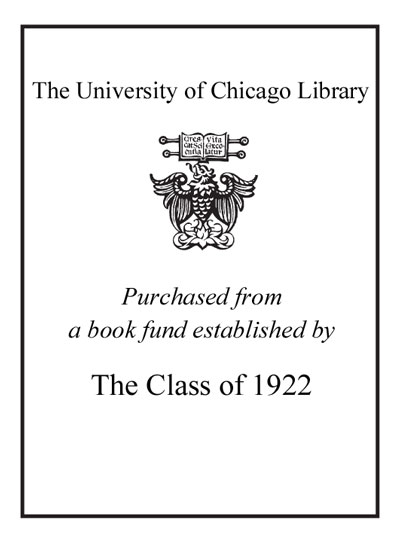Review by Booklist Review
After addressing climate change in With Speed and Violence (2007), London-based journalist Pearce joins the growing ranks of the curious and intrepid who are determined to dispel the fog of globalization and find out exactly where our food and belongings come from, where our trash goes, and how this complicated cycle impacts the planet. Vitally interested in the lives of the people who extract, process, and cultivate the materials, plants, and animals that clothe, shelter, and feed us, Pearce begins his far-ranging inquiry by tracing his gold wedding band to an immense South African gold mine. Unsettling conversations with coffee and cocoa farmers, an up-close view of the fish crisis, and exposés of the environmental havoc wrought by the surging palm-oil industry and the high human and natural costs of cotton and aluminum--everywhere his favorite foods, clothes, and gadgets lead him, Pearce is confronted by imbalance and waste, tyranny and greed. And yet the sheer ingenuity of people infuses him with optimism. An uneven yet engaging and informative report on the consequences of overconsumption.--Seaman, Donna Copyright 2008 Booklist
From Booklist, Copyright (c) American Library Association. Used with permission.
Review by Publisher's Weekly Review
Pearce's quest to discover "the hidden world" sustaining Western consumption habits is fulfilled with varying degrees of success in this, his third book. Tracking the routes taken by the items in his home--his coffee, cellphone, computer, green beans, chocolate, socks--from raw ingredient to finished product, the author presents fascinating firsthand investigations, as when he visits a group of fair-trade coffee farmers, follows the trail of his donated shirts to markets in Africa, visits Uzbek communities whose health, infrastructure and environment have been devastated by the cotton industry, and interviews female sweatshop workers who view their factory jobs as empowering. When Pearce strays from these journalistic portraits, however, he is prone to flaccid opining about the greenest fuel sources and simplistic boosting for urban planners designing "small-footprint" cities. The most effective chapters puncture the feel-good myths surrounding fair trade and recycling and introduce unique characters, such as the farmers and middlemen responsible for getting prawns from Bangladesh to a London curry shop. Although a timely effort, Pearce's diffusion of his reportorial mission with green-pleading mires his refreshing discoveries in moralizing and familiar cant. (Oct.) (c) Copyright PWxyz, LLC. All rights reserved
(c) Copyright PWxyz, LLC. All rights reserved
Review by Library Journal Review
At first glance, this title appears to be another in the current onslaught of "green" books. However, journalist and author Pearce (When the Rivers Run Dry) extends his exploration from the ecological to the social and economic implications of our "stuff." By choosing several categories of possessions--food, clothes, beer cans, and garbage--and seeking out the origins or hunting down the resting grounds of each, Pearce sets off on a journey crisscrossing the globe. While obviously creating a carbon footprint of his own, Pearce tells the stories of the heads of each industry and the laborers whose families are supported by them. His calculations of the carbon footprint of, for example, each green bean grown in Kenya, are an interesting and somewhat unique view of the impact produce grown abroad and air-freighted to high-income economies has on the planet. Through this book, readers will gain a holistic sense of global markets, and some actions (e.g., buying green beans from Kenya instead of beans grown locally in a hothouse) emerge as surprisingly virtuous when the true global impact is revealed. Recommended for public and academic libraries.--Jaime Hammond, Naugatuck Valley Community Coll., Waterbury, CT (c) Copyright 2010. Library Journals LLC, a wholly owned subsidiary of Media Source, Inc. No redistribution permitted.
(c) Copyright Library Journals LLC, a wholly owned subsidiary of Media Source, Inc. No redistribution permitted.
Review by Kirkus Book Review
New Scientist environment and development consultant Pearce (With Speed and Violence: Why Scientists Fear Tipping Points in Climate Change, 2007, etc.) looks at the stuff our consumer dreams are made of, drawing dire conclusions about globalization along the way. The author is interested in our personal footprints, the amount of materials, labor and fuel that supplies us with luxuries. "The people and the pollution that sustain us are invisible to us,"he writes. He sets off on a globetrotting tour to find out where "the coffee in my mug and the shrimp in my curry, the computer on my desk and the phone in my hand" come from. Pearce takes a populist perspective, spotlighting the humanity of both consumers and often-impoverished producers, but the book is nonetheless a disturbing indictment. Nearly every chapter suggests that key resources are becoming scarcer and more sought after, resulting in a deepening inequity even as vaunted "fair trade" practices in industries like coffee purportedly lift some boats. The voracious tastes of Westerners for inexpensive fashions and cell phones have damaged places like Bangladesh and rural China, causing both environmental despoliation and unexpected social gains for women, who are preferred in many factories for their perceived nimbleness. Pearce illustrates the slippery nature of these transformations with observations such as, "child labor is largely banished now from the factories that Western buyers know about." He argues that we can barely conceive of how the elaborate supply chains of global trade are transforming many far-flung societies. Our love of jeans is apparently destroying Uzbekistan, where much cotton is now grown with ruinous ecological effects, and we may have but a few decades left of many of the metals and resources necessary for our beloved high-tech lifestyle. Pearce delivers this news in an incongruously sunny tone and ends with several optimistic chapters arguing that we can still control population growth and climate change, but his underlying thesis remains grim. An able exposition of many of the ugly realities behind the global marketplace's attractive exterior. Copyright ©Kirkus Reviews, used with permission.
Copyright (c) Kirkus Reviews, used with permission.
Review by Booklist Review
Review by Publisher's Weekly Review
Review by Library Journal Review
Review by Kirkus Book Review

